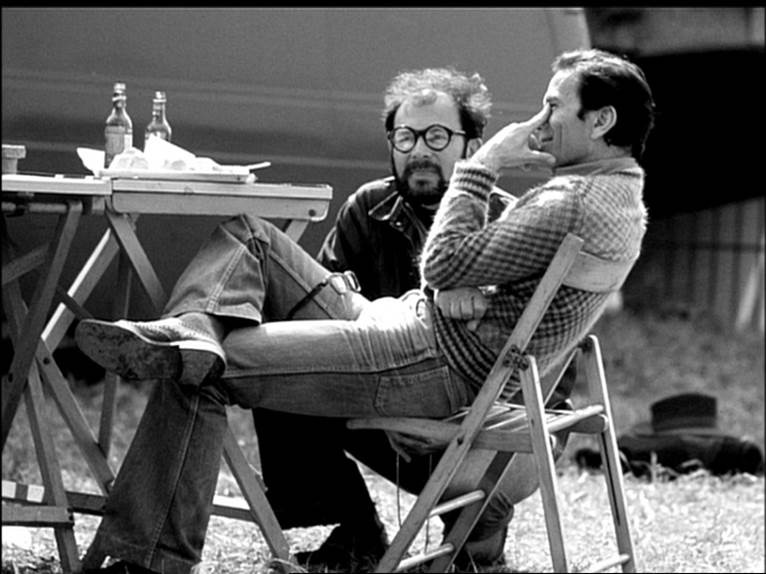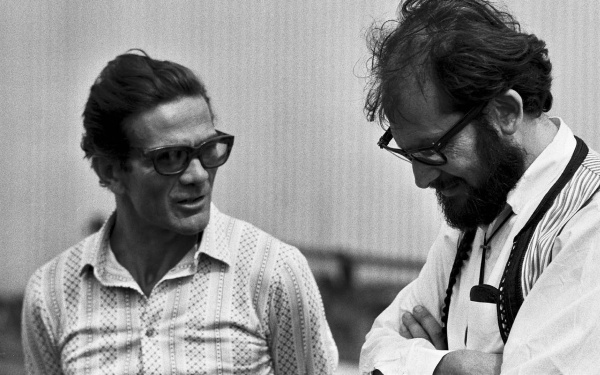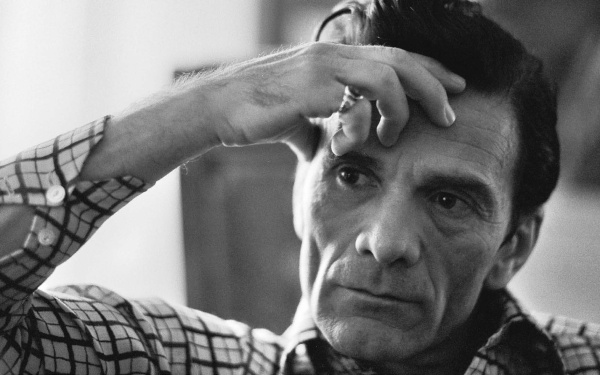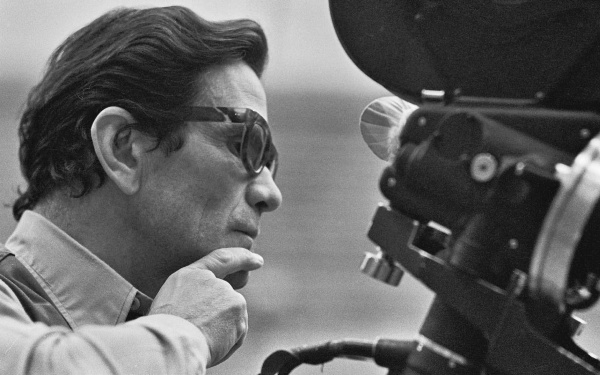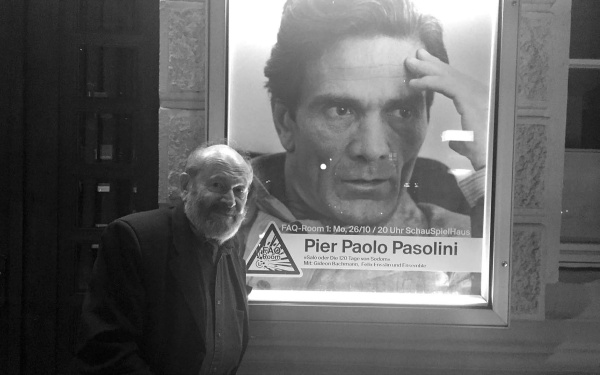The Art of Speaking with Pasolini
Hannah Pilarczyk and Fabien Vitali on Gideon Bachmann's conversations with Pier Paolo Pasolini
Tue, April 12, 2022 6:00 pm CEST
- Location
- Online
- Language
- German
Gideon Bachmann, whose »Stimmenarchiv« has been at the ZKM since 2014, conducted numerous conversations with the writer and filmmaker Pier Paolo Pasolini from 1963 to 1975. The unconventionally conducted interviews reveal Pasolini's critical thoughts on the poetic idiosyncrasy of cinema, on dealing with the past, and on the threat posed by a technocratic neo-capitalism. Bachmann saw Pasolini as a seismograph of society.
Pier Paolo Pasolini (1922 – 1975) understood his work as an aesthetic commitment to the society in which he lived. His poems, novels, and films address social change in the postwar period and sharply criticize the emerging consumer society of neo-capitalism. Despite or perhaps because of his considerable successes, Pasolini was a controversial public figure, often met with hostility. Even though his relationship with the press was strained, he knew how to use its channels for himself and his works. He purposefully took part in television shows and gave interviews in order to present his outsider role in a multi-faceted way and to be able to comment on his works.
Journalist, photographer and filmmaker Gideon Bachmann (1927 – 2016) reported on cinema on american radio and in international newspapers since 1955 and made documentaries on filmmakers such as Jonas Mekas and Federico Fellini. Through his charming persistence, he had established many contacts with film personalities. Fluent in seven languages, he was a welcomed guest at film festivals worldwide. Through his pioneering work as a radio host of a film program, he gave voice to both young and established film personalities. But Bachmann was never solely concerned with mediation. He rejected the term "interview" for his open forms of conversation, because in addition to the answers, he was more interested in the intense encounter with the interlocutors.
The encounters between Pasolini and Bachmann were initially based on mutual benefit: Bachmann was attracted by the idea of gaining interpretive sovereignty over Pasolini, and Pasolini benefited from the reach of Bachmann's radio programs. Soon, however, Bachmann's lack of knowledge of Pasolini's cultural background became apparent, and Pasolini became Bachmann's teacher on italian, marxist, and cinematic issues. Over the course of their twelve-year acquaintance, a certain familiarity developed that culminated more and more in shared, pessimistic laments about the state of the world.
Bachmann's open conversations with Pasolini call for critical contextualization. Literary scientist Fabien Vitali transcribed, translated, and commented the 13 conversations between Pasolini and Bachmann for the book »Pasolini – Bachmann. Conversations 1963 - 1975«, which will be published in April 2022 by the Galerie der abseitigen Künste to commemorate Pasolini's 100th birthday.
Participants
Hannah Pilarczyk, Journalist and curator in the field of film and television
Fabien Vitali, Literary scholar and editor of the book »Pasolini – Bachmann«
Christian Haardt, Research assistant at the audiovisual archive of the ZKM | Karlsruhe
The Art of...
A series of events offering insights into the ZKM's collections, archives, and research in exchange with artists, theorists, curators, and conservators.
-
Wissen – Collection, Archives & Research
The ZKM's collection as well as its archives are unique in their specific focus on the electronic and intermedial arts of the 20th and 21st centuries.
-
Archives of artists and theorists
The ZKM archives invite scientists and people interested in art and music to develop new perspectives on 20th and 21st century art from books, magazines, letters, photographs, drawings, videos and audio recordings.
-
Vox Humana | The Gideon Bachmann Archives
The interview archive of the filmmaker and film critic Gideon Bachmann (1927 – 2016) is one of the most comprehensive interview archives in the field of film history after World War II and orally conveying the transformation from Hollywood's studio system to New American Cinema and the European Nouvelles Vague. The archive was acquired by the ZKM in 2014.
